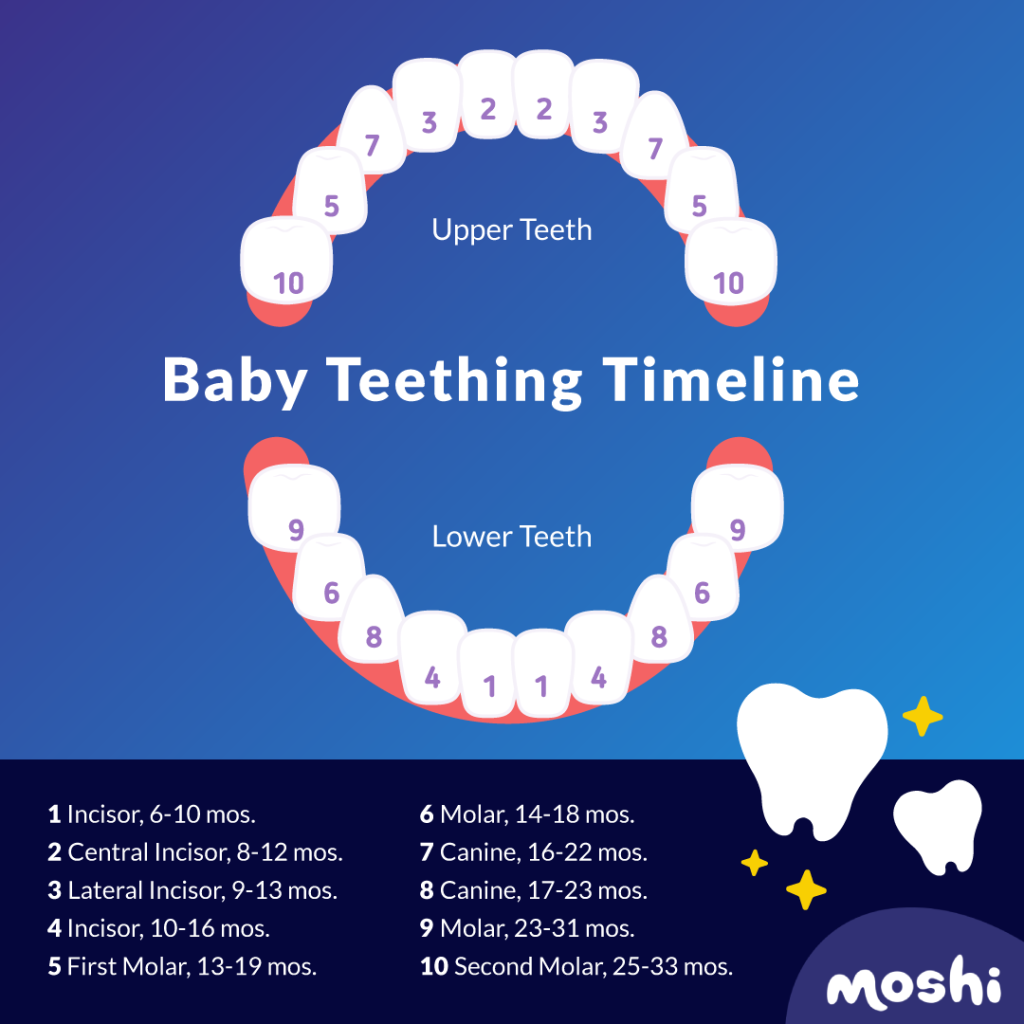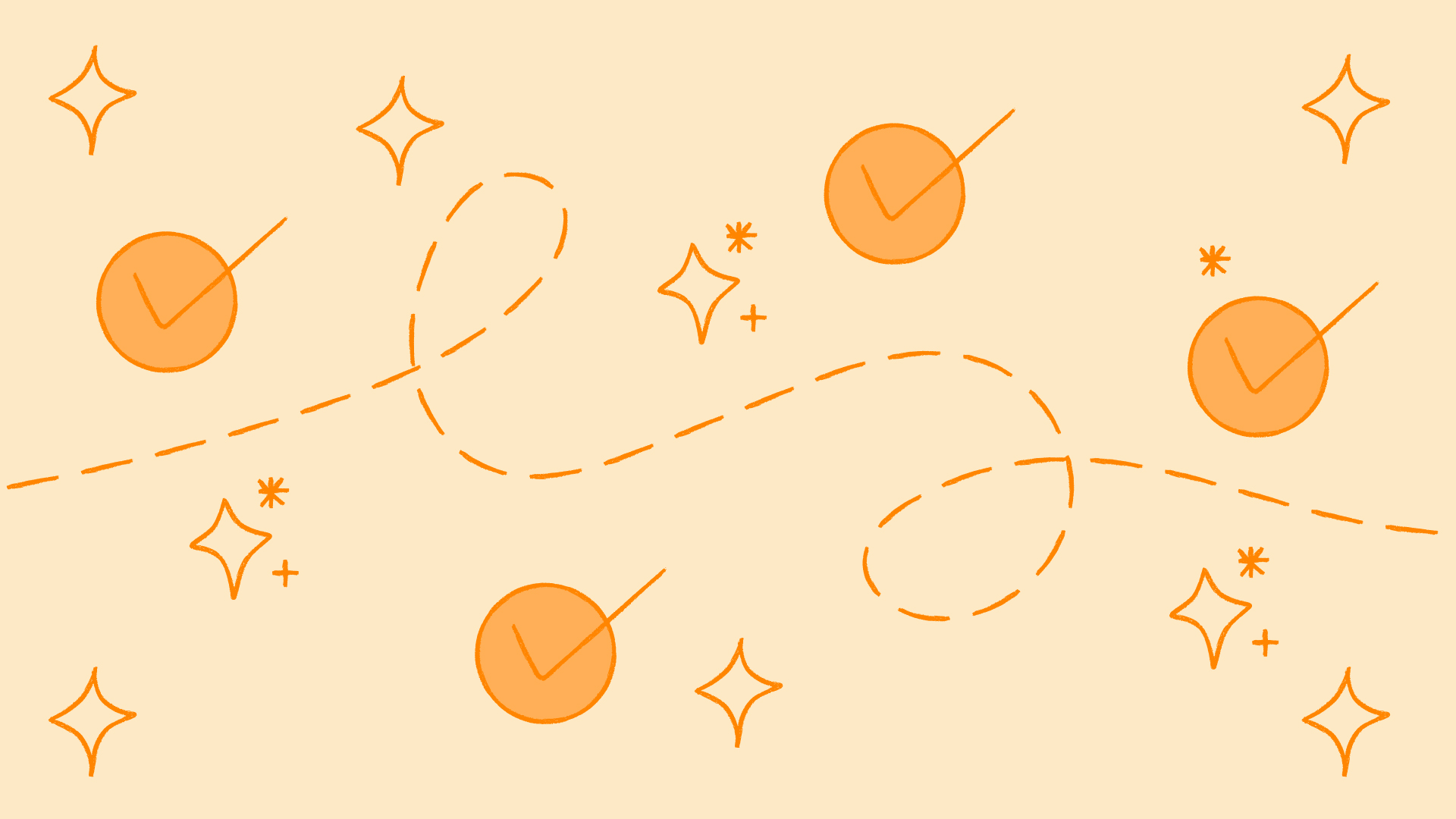
- 4 mins
How Long Does Teething Last? A Timeline For Parents

As parents, we want to ensure our child reaches every milestone at the correct time. When we start researching milestone checklists, we might feel a little overwhelmed by the number of targets or goals included in each month of a baby’s development and then each year of a young child’s. Try and do some extra mindfulness practices when you go through the lists, but remind yourself that most of these milestones will be reached without a lot of planning or focus on teaching them. There are times when some missed milestones should be mentioned to your pediatrician and perhaps worked on more closely. Still, for the most part – your child will learn in a stimulating environment with loving a loving caretaker.
I have found the CDC (Center for Disease Control) list accurate and helpful for comprehensive child development milestones checklists. If you would like to download and print a helpful brochure from them with general milestones and suggestions to support your child, click here. The CDC also has a milestone tracker app that helps record your child’s milestones within their age group.
You might not complete the list when your child is in a happy or calm mood. Your child might develop slower in some areas and excel in others – which is not often accounted for in a simple “Yes/No” checklist. Schedule an appointment with your pediatrician if you feel worried about your child not reaching these presumed to be “typical” milestones.
Take notes of your observations in various environments with your child. It is always a good idea to share these with your doctor. If you feel comfortable recording your child and they are too, share some videos of your child during the times you observed and were concerned about your child with the pediatrician. You are, after all, the true experts on your child – you see them in various environments, interacting with different people, and understand what they are comfortable with and what they don’t like.
According to Misirliyan and Huynh (2022), developmental milestones are grouped into the following categories: language, motor, social/emotional, and cognitive. When we create Individual Educational Plans (IEPs) for children at my company, we focus on the most important concepts in typical development. Without going into every age group’s specific goals, I feel it would be helpful to explain some of the concepts within the milestones checklist we have gathered from years of research. I have explained seven of the concepts we work on below.
This will include any academic targets and goals appropriate for your child according to their age. The best way to include academic targets is to keep these interest-based and fun. If your child is interested in butterflies and creative arts, you can utilize this to teach educational goals. Ask your child to request and use specific colors to increase their vocabulary and improve color recognition.
Teaching our children how to request a break will help them recognize and self-regulate their sensory and motor needs.
Working with another family member or peer is an excellent way to work on socialization. They’ll also learn how to wait and take turns.
This concept can be worked on with all ages. From babies pointing at what they want or need to older children using longer sentences. Communicating our needs is a powerful tool to learn and utilize from a young age.
Some children won’t always enjoy arts and crafts, but it is an important concept to include when looking at developmental milestones. We can help our children enjoy art by including their interests again. If they like Spiderman or Batman, we can create figurines or paint these on big cardboard. We can always cut these out and then play with peers and siblings.
We often include interest-based games, such as hopscotch, going to an outdoor play area, and engaging in finer movements, like picking up cotton balls with tweezers to paint. These activities can be included during outings and have the added benefit of being fun for everyone in the family.
A strong focus, even with young children, can be on pausing before reacting. They can focus on their breath and include meditation and stories, such as they share in Moshi. These practices will ultimately help our children understand that they are in control of their reactions, but not of another person’s actions.
To find specific targets for each month or year, I would suggest working through the checklists, such as the one mentioned above from the CDC. I would also remind myself that children will learn naturally if stimulated, happy, and content. Being the parent you are, reading different blogs on parenting, and searching for ideas on creating fun ways to include milestone goals, I am sure you cover these prerequisites. Keep it up – you are doing great!
Misirliyan SS, Huynh AP. Development Milestones. [Updated 2021 Jul 18]. In: StatPearls [Internet]. Treasure Island (FL): StatPearls Publishing; 2022 Jan-.